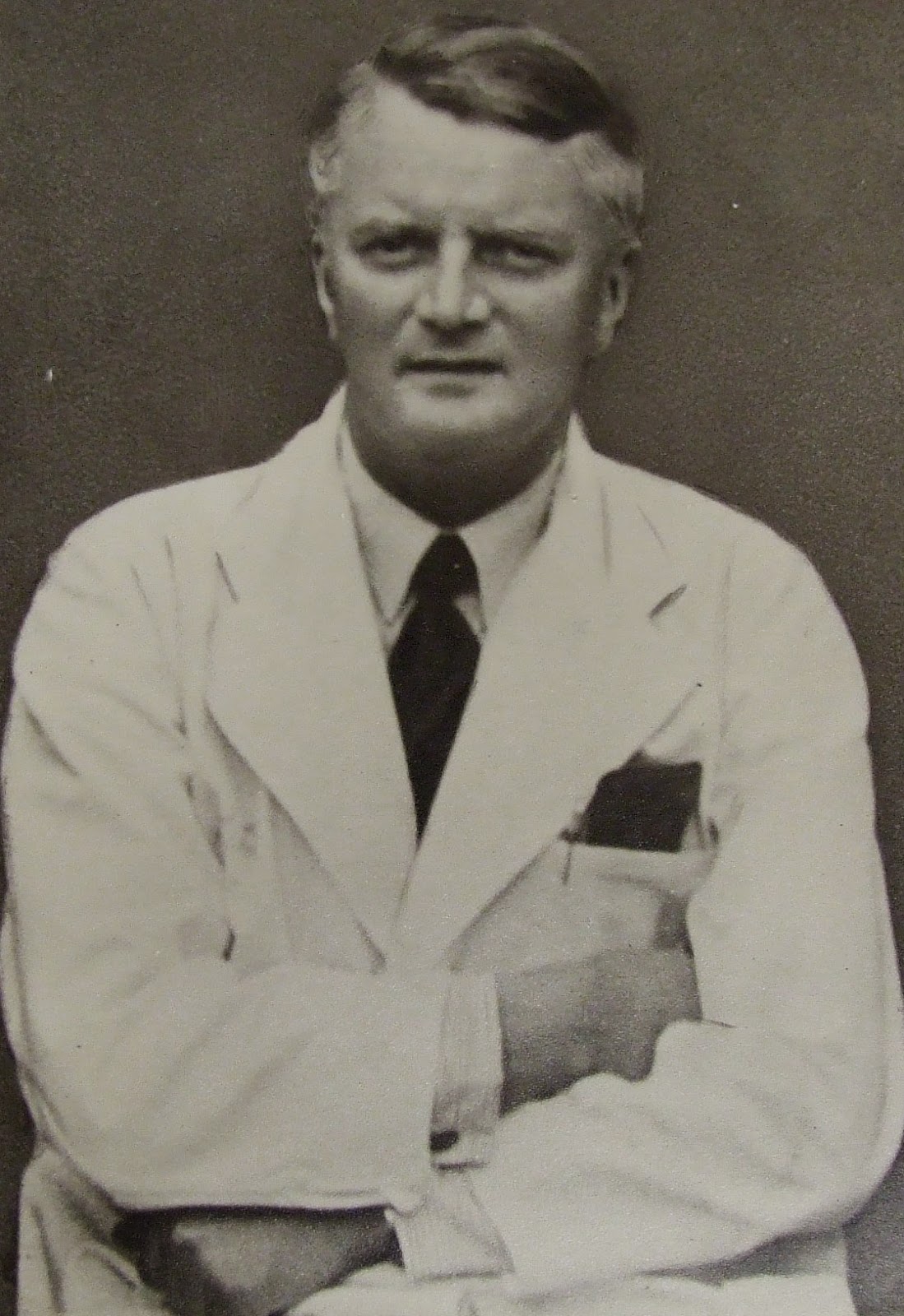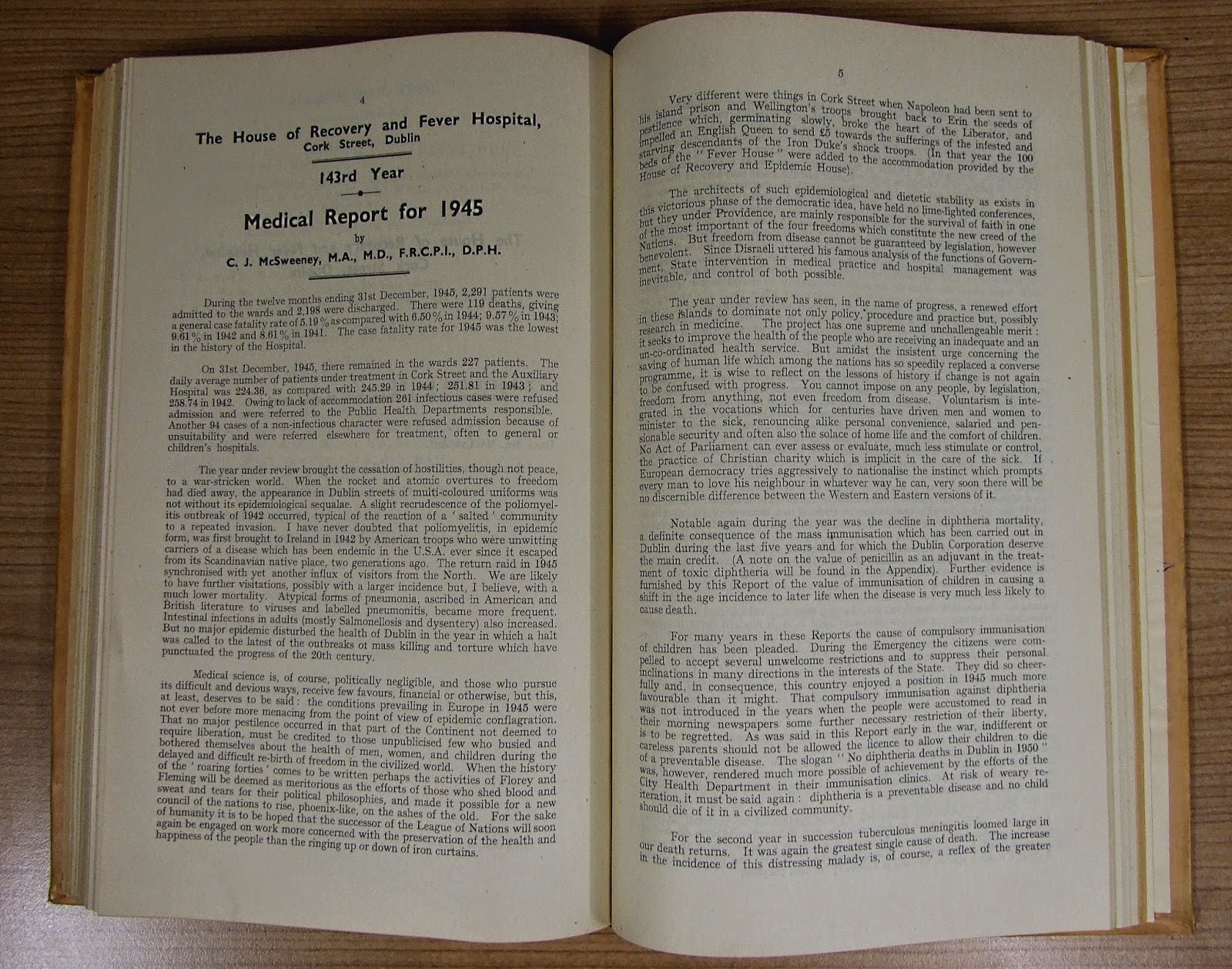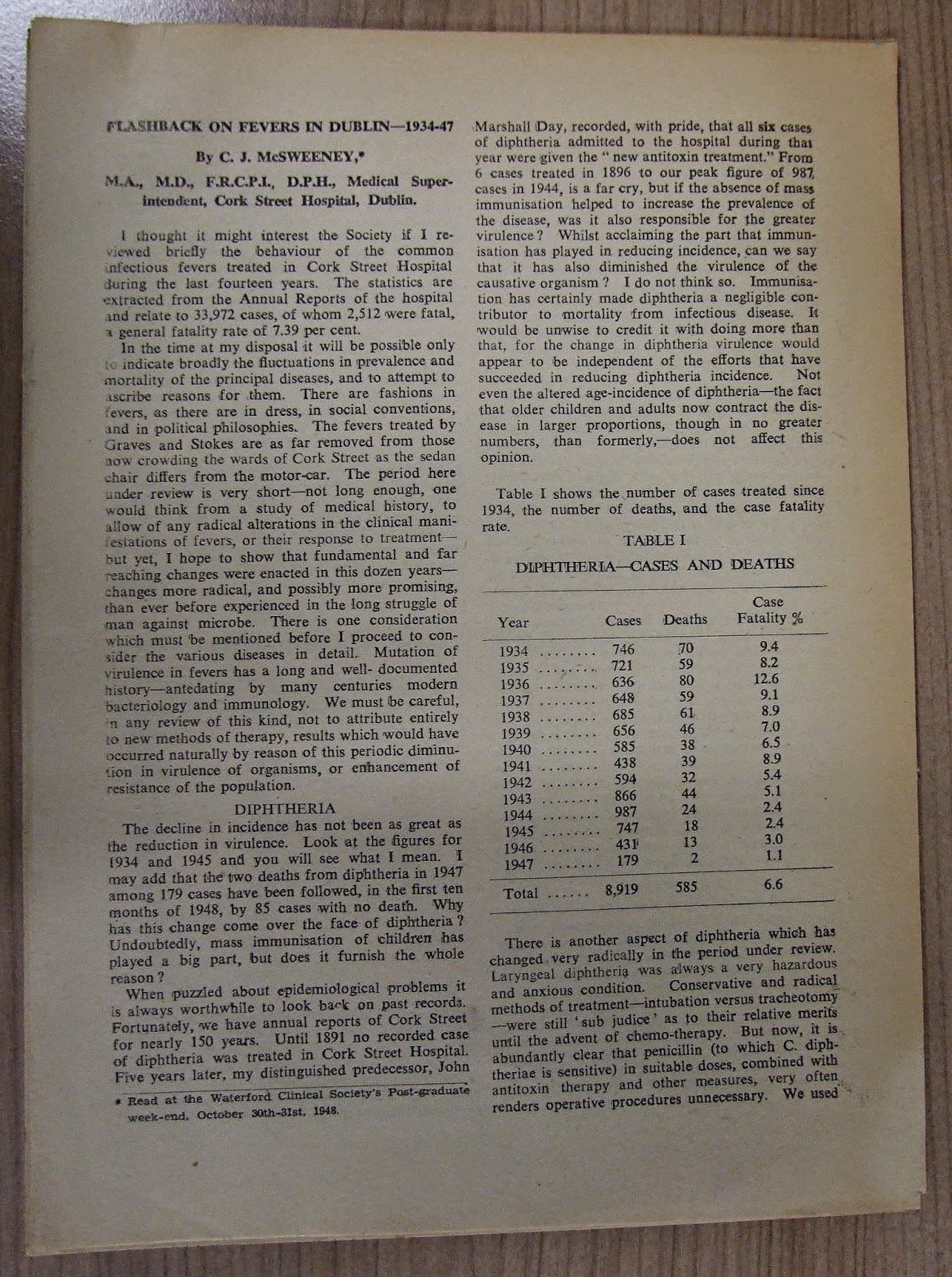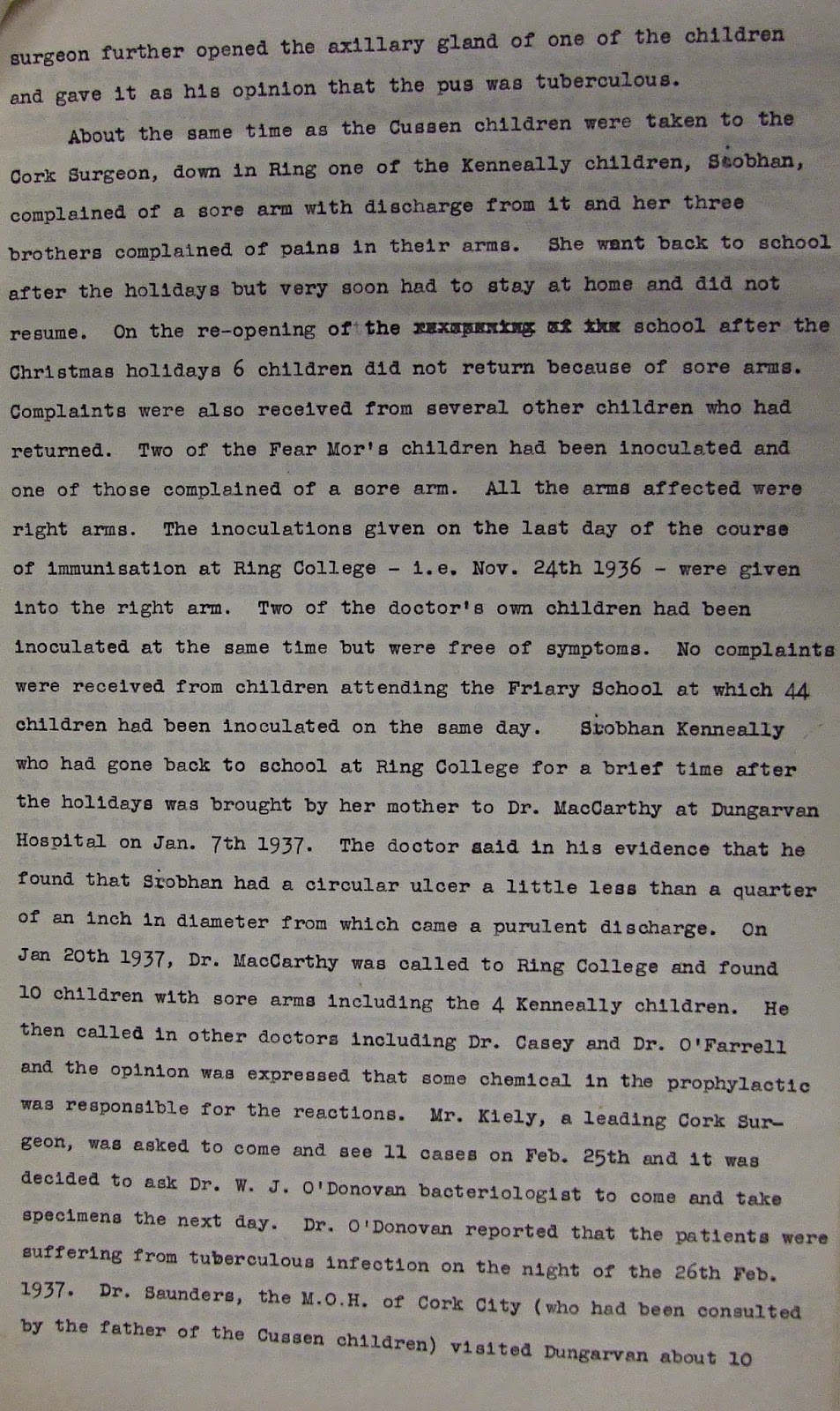'A Man of Many Abilities as Organiser, Administrator, Clinician, and Teacher': Dr CJ McSweeney
One doctor who looms large in the archive
of Cork Street Fever Hospital is Dr CJ McSweeney, Medical Superintendent from
1934 to 1953. Over the past few months I have become very acquainted with Dr
McSweeney while cataloguing his research and teaching papers, the annual
medical reports he wrote for the hospital, and his weekly reports for the
hospital board. These archival sources show Dr McSweeney to have been a man of
‘many abilities as organiser, as administrator, as clinician, and as teacher’,
as described by one obituarist.
 |
| Portrait of Dr McSweeney (CSFH/3/1/1/10) |
Christopher Joseph McSweeney was born
in Cork in January 1899. A graduate of University College Cork, Dr McSweeney
had a brilliant student academic career, qualifying with first class honours in
1921. Following a short period of post-graduate study, he moved to Dublin in
1922 where he worked for a spell as External Maternity Assistant to the Rotunda
Hospital, before becoming Deputy Medical Officer of Health in Cardiff. For some
years he was also Superintendent of Cardiff Isolation Hospital, whilst simultaneously
lecturing on infectious diseases in the Welsh National School of Medicine.
In 1934 Dr McSweeney returned to
Dublin, taking up the role of Medical Superintendent in Cork Street Fever
Hospital. He continued to teach in the years that followed, acting as an
Examiner to the Nursing Councils in both Northern Ireland and Eire, and holding
a Deputy Professorship in Preventative Medicine in Trinity College Dublin.
 |
| Dr McSweeney's Medical Report for 1945 (CSFH/1/2/1/9) |
In 1953 his obituarist remarked:
‘He came to an old hospital outmoded
in many respects, which the Governors hoped soon too rebuild. He came to a city
with a large slum population and a high incidence of infectious fevers,
especially diphtheria of the gravis type. He had arrived, too, at a time when
great advances in prevention were being made and remarkable therapeutic aids
were just around the corner. McSweeney made the utmost out of all these new
ideas. He saw the great possibilities of the sulphonamides alone and in
combination with the early antibiotics. In conjunction with the late Professor JW
Bigger, he made many investigations, using heroic doses of these drugs and
obtained results not previously known in the treatment of enteric fever. In
more recent years he did outstanding work in tuberculous meningitis with
streptomycin. He was an ardent and early advocate of mechanical aids to
respiration in poliomyelitis, and had a simple machine constructed in Dublin
[the Bragg-Paul Pulsator]’.
Statistics show that Dr McSweeney’s
time as Medical Superintendent coincided with declining mortality rates in many
febrile diseases. Case fatality from broncho-pneumonia fell from 43.7% in 1936
to 9.4% in 1939, while diphtheria case mortality rate fell from 12.57% in 1936
to 0% in 1948.
 |
Article by Dr McSweeney entitled 'Flashback on Fevers', printed in the Journal of
the Medical Association of Eire in 1949 (CSFH/3/1/3/22)
|
As Superintendent, Dr McSweeney also
had to overcome significant challenges of a non-medical nature. In 1937, Cork
Street Fever Hospital faced significant upheaval as it lost its voluntary
status and came under the administration of a local authority, the Dublin Fever
Hospital Board. Seven years later, in 1944, the hospital was subject to a
governmental sworn enquiry into alleged maladministration. This inquiry caused
significant stress to Dr McSweeney, as some allegations centred on his
collection of fees from patients and students. The findings of the inquiry were
never published.
The challenge of providing a new
modern hospital also exercised Dr McSweeney greatly. Throughout the 1940s and the
early years of the 1950s Dr McSweeney was centrally involved in the planning
and development of the new Fever Hospital at Cherry Orchard, visiting the USA
in 1951 in this connection. On 1 April 1953 Dr McSweeney moved into the new
Medical Superintendent’s house on the site of the still-uncompleted hospital in
order to supervise the final stages of the equipping of the hospital. Sadly he
died two weeks later on 17 April, seven months before the arrival of the first
patients.
 |
Extract from a paper read by Dr McSweeney at the Dublin Biological Club on 24 October 1939
on the Ring Irish College immunisation disaster (CSFH/3/1/3/17)
|
The Cork Street Fever Hospital
archive contains a wealth of material relating to Dr McSweeney. The weekly and
annual reports of the Medical Superintendent offer a glimpse of Dr McSweeney as
a capable administrator, an advocate of new treatments, and an outspoken
campaigner for state measures to combat diphtheria and poliomyelitis. A series
of records comprised largely of Dr McSweeney’s own notes and papers provides a
view of him as a teacher, researcher, and prolific author.
If you have any queries about Dr
McSweeney, or any part of the Cork Street Fever Hospital collection, please
contact heritagecentre@rcpi.ie
Fergus Brady,
Project Archivist